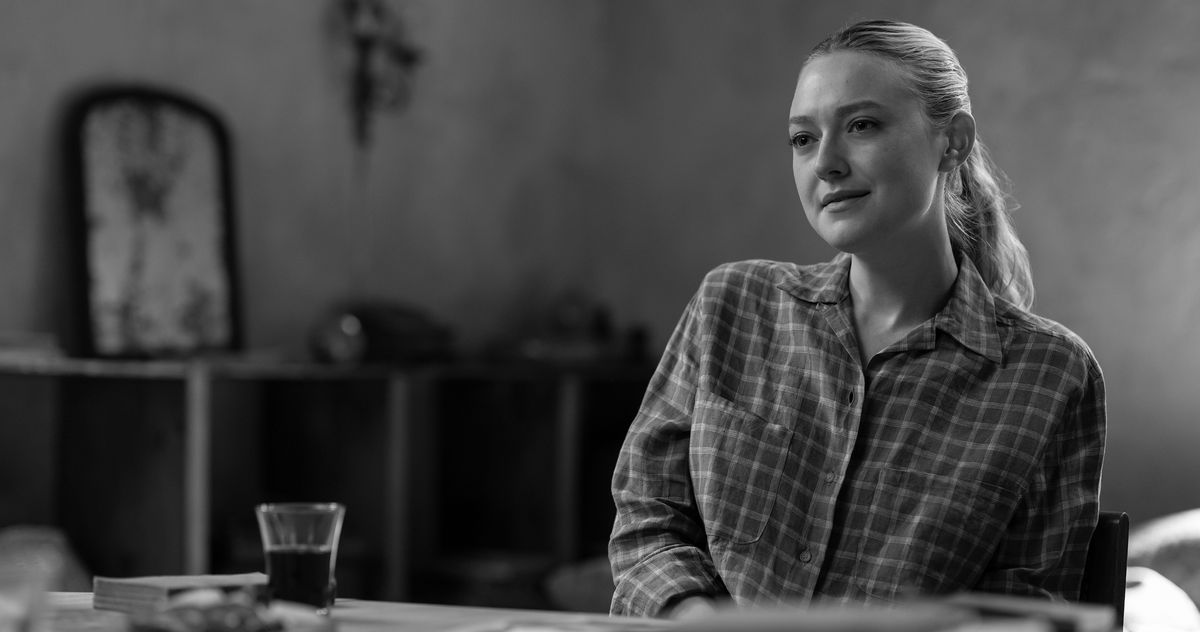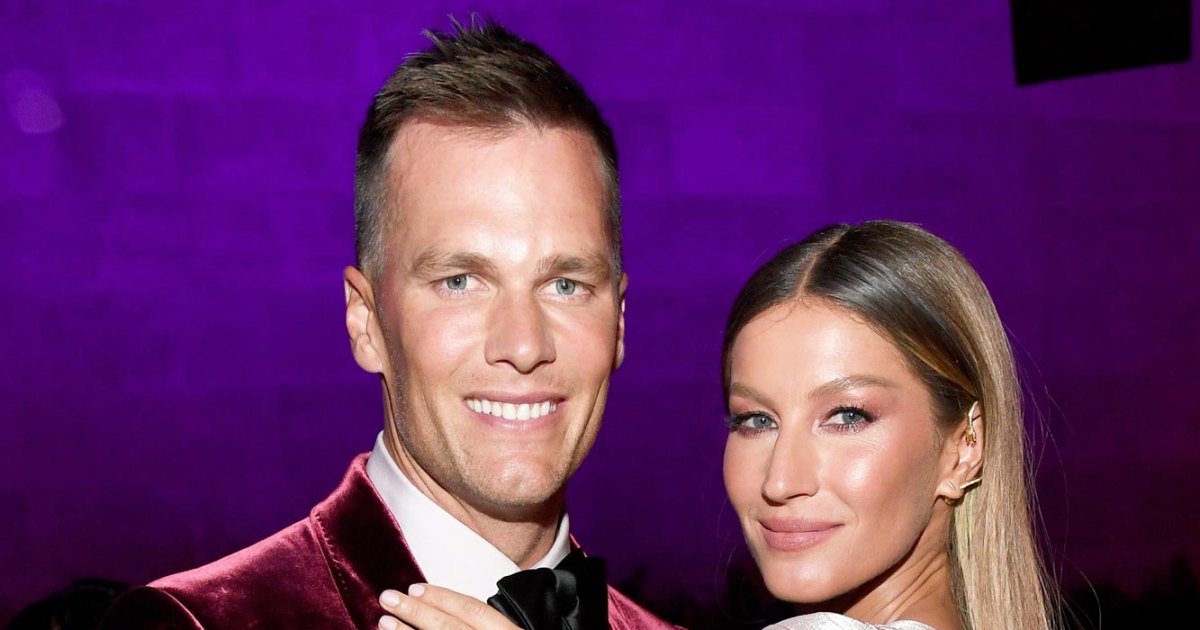Photo: Stefano Cristiano Montesi/Netflix
Wealth and status, as we know, have everything to do with desire. Lust and greed are twinned cardinal sins, which matters in Catholic Italy, where Tom Ripley is trying to pry his way into Dickie Greenleaf’s life. In fact, I’m reminded of the cardinal sins not a minute into “Seven Mercies”: going up the stairs — again! — and missing Marge just barely, Tom walks past the Virgin Mary altar on the landing of Atrani’s stone steps on his way to win Dickie over. It’s a clever move on Zaillian’s part to have Tom and Marge cross each other like that: The simmering tension of their relationship is, though unspoken, clearly a product of their mutual desire for Dickie. Because she has known him longer and is a woman, Marge has the upper hand, but her insecurity is the kind of incentive that should be kept secret from someone like Tom Ripley, our beloved (?) master of opportunity.
Ripley’s grifting style is counterintuitive in nature; his moves invite unpredictable consequences yet always turn out perfectly. He improvises on the spot but with a precise aftermath. He’s like an experienced gambler who plays his quirky moves so confidently that they always pay off. An example of a minor one: in the previous episode, as he left the villa, Tom swiped one of Dickie’s pens from his desk. As we open on this second episode, Tom puts the pen back — that’s signature Ripley. Why would he take the pen if he doesn’t plan on keeping it? Then, finding Dickie reading the paper out on the balcony, Tom suddenly — and we might at first think, recklessly — reveals the true reason for his being in Atrani: Mr. Greenleaf sent him over in hopes that Tom would convince Dickie to come back to America.
Dickie is confused at first. Why Tom? “Because he couldn’t get any of your real friends to do it.” Does he think that’s going to work? It’s unclear, but it’s obvious that there’s no point in trying. Why would anyone ever want to leave this place, anyway? Dickie is amused; his contempt towards his father’s desperation is his first open expression of real feeling. Tom instantly recognizes the crack in the smooth surface of Dickie’s indifference. That is signature Ripley: not only does he know exactly what to say to crack Dickie, a man he’s just met, but he knows exactly how honesty might advance his grift. In my recap for the last episode, I mentioned that Mr. Greenleaf’s paternal earnestness works on Tom — he feels moved to stay close to their world. But on seeing him manipulate Dickie so quietly and so masterfully, I’m wondering if it wasn’t the other way around. Tom opened up about his parents’ death because doing so would elevate Mr. Greenleaf to the paternal role, where he would be more inclined to be generous with his wallet. Bravissimo!
The way in with Dickie, Tom realizes, is to get him excited about conning Mr. Greenleaf for money. Dickie’s cluelessness would be compelling if he weren’t so hard to like. Later in “Seven Mercies,” Tom and Dickie are walking around Naples when they come across a fallen woman on the street, holding her ankle. She tells Dickie that she has just been robbed, and the cab parked nearby won’t take her home because she doesn’t have enough money. Dickie puts her in the car and hands the driver a wad of lire. Tom points out what was a scam. How could Dickie not see it? But even after Tom tells him, Dickie is unbothered. He carries himself with the assurance of a rich boy in charge of his own destiny, ruled only by his whims; Marge would probably describe him as indifferent, while Tom more accurately sees him as arrogant (not that his arrogance makes him any less attractive to either Marge or Tom).
Unpacking the clothes Tom brought him from America, Dickie understandably mocks the paisley robe that Tom had picked out. The hurt in Scott’s puppy eyes is genuine and, for that reason, unbearable — it’s exactly this kind of miscalculation that endears us to Tom. He might be sleazy and creepy, but the root of his sleaziness is his desire to be loved and respected by his peers. But if he felt inadequate for not knowing the right clothes, his confidence is easily recovered when he sees what Dickie has been up to in Atrani: painting the most horrendous paintings of all time. Even Tom Ripley becomes speechless at the sight of Dickie’s “abstract period” or his hair-raising nudes of Marge. “I’m not a great painter,” Dickie concedes weakly. But that’s beside the point. What’s important is that Tom has made it in. Dickie finally invites Tom to leave his hotel and stay at the villa instead. They hang Dickie’s abysmal landscapes on the bare walls of his new room.
Marge arrives at the villa as Tom and Dickie are pouring themselves a drink to wrap up a day of moving Tom in. As soon as she arrives, the conversation becomes unendurably awkward again. What’s interesting about Marge’s role in the trio’s dynamic is that, while it may be tempting to think of it this way, she’s not Yoko. (I would argue that Tom is Yoko, the brilliant artist who changes paradigms.) But she wants to be Yoko — she wants to feel in control of her time with Dickie, even when their relationship is supposedly predicated on a bohemian kind of freedom. A misogynistic society unfairly villainized Yoko Ono, it’s true, but it’s not outlandish to believe she probably had her moments of Marge-grade bitchiness; she is only human, after all. As they spend more time together, heightened tension and simmering jealousy color the increasingly awful relationship between Marge, Dickie, and Tom in horrid tones that rival Dickie’s paintings and robe.
I want to pause here to consider the way queerness emerges in the Ripley universe and how it has been interpreted across the decades. Highsmith, who was a lesbian herself, made queerness, by turns, implicit and explicit in her novels. The Price of Salt — indelibly adapted by Todd Haynes into the excellent film Carol — is her only romance novel, a story about a love affair between a young woman and a wealthy suburbanite that is also at least partly about the institutionalization of oppression. Margaret Talbot at TheNew Yorker points out that it’s her only book “in which no violent crime occurs.” But other, less explicitly queer stories in Highsmith’s oeuvre, like Strangers on a Train, still set up an uneasy sexual tension between its characters. In Minghella’s adaptation of The Talented Mr. Ripley, Tom’s queerness, though obvious, is less an explicitly acknowledged fact and more an underlying motivation, an unspoken but tangible desire that powers Tom’s hunger for Dickie and his life. Because film adaptations of Ripley stories have often been ambiguous on the point of Tom’s sexuality, I’d expected to encounter a similar kind of vagueness in the original 1955 novel, but I was surprised to find that it’s not only an explicit theme, but the main point of tension between Tom and Marge. She is not just jealous of Dickie’s time spent with Tom but genuinely threatened by him and repulsed by the thought of his — or, God forbid, Dickie — being queer. (Her bitchiness is not her only character flaw. Judging by the reaction Tom has to the book she’s been working on in Atrani, which he offers to give notes on under the guise that he’d worked at Random House in New York, she is about as good a writer as Dickie is a painter. They truly deserve each other.)
It’s exciting to see that Zaillian is bringing the question of Tom’s queerness to the fore, as Highsmith originally did. In “Seven Mercies,” he begins setting it up when Tom and Dickie run into Italy’s second-most-famous trust-fund-dilettante, Freddie Miles. Played by Eliot Sumner (wearer of many hats: musician, DJ, and Sting’s kid), Zaillian keeps Freddie consistent with the rest of the cast’s quietly suspicious air. Freddie seems to remember Tom from New York, from Bob Delancey’s. We don’t know what that means exactly — we have no reference for who Bob Delancey is in the show, though in the novel, that’s the guy that Tom lives with in Manhattan — but the implication in Freddie’s tone is enough to suggest that he would be a “controversial” figure. Later, after certainly getting chewed out by Marge, Dickie calls Tom over to set the record straight. “I’m not queer,” he says. Prodded by Tom about this apparently sudden directness, Dickie concedes that it was Marge’s notion that Tom was and that it was Dickie’s obligation to be clear.
At this point, Tom is on thin ice with Dickie. Earlier that same day, Tom had been trying to convince him to accept a deal that’d been offered to him by a man named Carlo at a local cafe. Carlo would give Tom and Dickie money to take a suitcase to Paris, no questions asked. Once the bag was dropped off, they would be under no further obligation to Carlo. I have to give this one to Dickie: it’s a crazy idea, one that would only sound reasonable to a person with a less-than-solid moral compass. What hurts Tom’s feelings is not necessarily that Dickie won’t go to Paris with him, but the mocking condescension of his refusal, the way he seems to say, “See, the difference between you and me …” Later still, Tom is in Dickie’s room, where he dressed up in Dickie’s clothes and practiced breaking up with Marge in the mirror. This is one of my favorite scenes in all of the Ripley-verse: it’s a great moment in the book, and perfectly cinematic. It also is a unique situation to put a psychopath in, and suited to Tom’s idiosyncrasy: it’s not often that we see a con artist feel so embarrassed, especially after having felt hurt. Zaillian has Tom strip totally naked — he even wears Dickie’s underwear, which I think is a nice touch. He practices Dickie’s diction, his mannerisms. Dickie catches him in the middle of this routine, which definitely doesn’t help his mood before he tells Tom he is romantically uninterested in men.
Tom is trying hard with Dickie; maybe too hard. But this episode also leaves us with an interesting question about Dickie himself. If he is so repulsed by Tom, as his barely conceived hostility seems to indicate, why can’t he let Tom go? He doesn’t seem like the kind of person who’d rather withstand inconvenience than hurt someone’s feelings. Though I appreciate the arrogance of Johnny Flynn’s Dickie, I wish his performance had a more recognizable humanity, or at the very least the seed of connection. I don’t buy his affection for Tom, or for Marge — and it’s the tension between these two feelings that should technically be the reason why, caught in the middle of two strong personalities, he’s paralyzed. It’s unclear whether Dickie keeps Tom around because he wants another sycophant, because he genuinely likes him, or because he’s looking to sabotage his own relationship with Marge at some level. In any case, presenting Dickie as a fundamentally unlikeable character adds a layer of distance between us and Tom: why should we care what he thinks? It’s a testament to Highsmith’s superb crafting of these characters that even though Tom Ripley is a con artist and a grifter, not to mention creepy as all hell, I leave this episode thinking: Dickie Greenleaf is such a narcissist!















